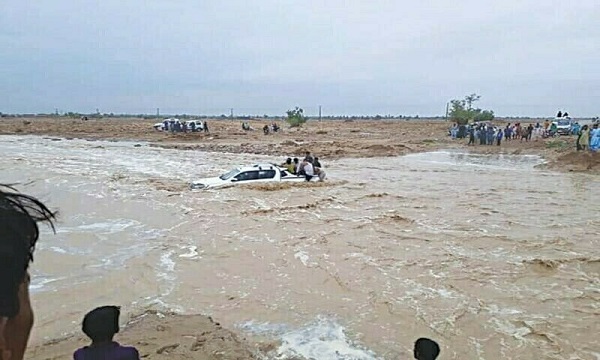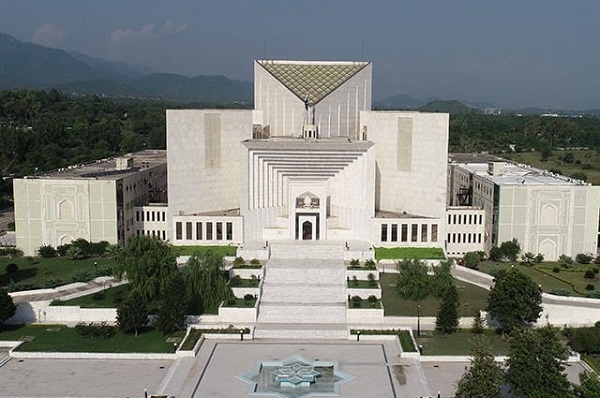PESHAWAR: The Supreme Court on Monday suspended the Peshawar High Court’s (PHC) verdict denying the Sunni Ittehad Council (SIC)
ISLAMABAD: Minister for Climate Change Sherry Rehman said a “war room” has been established by the prime minister at NDMA, which would spearhead relief operations across the country. She admitted that the incessant “monstrous” rainfall had “made it hard to carry out relief operations, especially helicopter sorties”.
“Pakistan is going through its 8th cycle of monsoon; normally the country has only three to four cycles of [monsoon] rain,” the minister said during a press conference in Islamabad.
“Pakistan is under an unprecedented monsoon spell and data suggests the possibility of re-emergence of another cycle in September.”
Senator Rehman, who compared the current situation with the devastating 2010 floods earlier this week, said the current situation was worse than that. “The water is not only flowing from the north as in 2010, but it is equally or more devastating in its sweep and destructive power,” she added.
According to the senator, flash floods caused by heavy rains had swept away bridges and communication infrastructure in various areas of the country. “Almost 30 million people are without shelter, thousands of them displaced and have no food,” she told reporters.
Stressing the need for relief from international donors, the minister said that the need for shelter and relief was dire as per what the provinces had conveyed. “It is still an evolving situation and every day the needs assessments were changing as the rains did not stop and the water kept coming,” she said, adding that the number of homeless was growing.
Sindh has asked for one million tents and Balochistan has demanded 100,000 tents, she said, adding that all tent manufacturers had been mobilised and external donors were also approached for tents.
Calling the incessant monsoon rains a “climate-inducted humanitarian crisis of epic proportions”, the Pakistan government on Thursday officially declared a ‘national emergency’ in light of the rain-induced floods which have so far killed 937 people, including 343 children, and left at least 30 million without shelter.
As per the latest data compiled by the National Disaster Management Authority (NDMA), Sindh reported the highest number of deaths as 306 people lost their lives due to floods and rain-related incidents from June 14 to date.
Balochistan reported 234 deaths whereas Khyber Pakhtunkhwa and Punjab recorded 185 and 165 deaths, respectively. In Azad Jammu and Kashmir, 37 people were killed while nine deaths were reported in the Gilgit-Baltistan region during the current monsoon rains. In the same period Islamabad reported one death.
According to the NDMA, Pakistan received 166.8mm of rain in August, as opposed to the average of 48mm — an increase of 241 per cent. Sindh and Balochistan — the worst-hit regions — witnessed a 784pc and 496pc increase in the monsoon deluge, respectively, it added.
Consequently, the abnormal increase in rainfall generated flash floods across the country, particularly in the southern part of Pakistan, which remains inundated at the moment with 23 districts of Sindh being declared “calamity-hit”.
You May Also Like
GAZA: Palestinian militant group Hamas on Monday agreed to a Gaza ceasefire proposal from mediators, but Israel said the terms did not meet
WASHINGTON: A former high-profile agent of the US Federal Bureau of Investigation (FBI), Kamran Faridi has been released from a Florida






